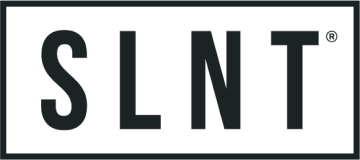Your Cart is Empty
Free Domestic Shipping on Orders Over $200
Free Domestic Shipping on Orders Over $200
7 Cybersecurity Tips for Freelancers in the Digital Age
September 30, 2022 5 min read

Freelance and remote work opportunities have significantly increased since the pandemic. As of 2021, an estimated 58.6% of the American workforce is working remotely. With integrated technology, it has become increasingly easier to work from anywhere and still be able to maintain excellent communication with clients and companies.
Cybersecurity is vital for freelance workers in this digital era. Managing clients' data and sensitive applications can make freelancers an easy target. Freelancers and remote workers must abide by protective cybersecurity tips and tricks to maintain a professional reputation, while preventing data leaks.
Most freelancers work from coffee shops and other unsecured public Wi-Fi spots. Working at these locations can be a refreshing switch up from the house or office, but it also can come with a price. With security breaches at an all-time high, it's essential to focus on keeping client information secure.
Cyber Attacks and Freelancers: Why You're A Prime Target
Freelancers are prime targets for cybercriminals. Working on multiple projects without a dedicated IT person to help guard against cyber attacks can compromise business and personal information.
Cybercriminals commonly use the following methods to gain access to freelancers' accounts:
-
Sending a malicious email attachment from a fake account
-
Hijacking an email address
-
Gaining access to the freelancer's computer through malware
-
Using keyloggers and other malware that can steal passwords
-
Compromising an online freelancing platform or marketplace account, using data leaks to steal the credentials of other users
What Are the Most Common Cybersecurity Threats Freelancers Face?
Hackers tend to target freelancers because they are often less versed in security practices and more likely to use public Wi-Fi networks. Freelance and remote workers are often less likely to use complex passwords. Here are a few of the ways that freelancers are commonly attacked:
Identity Theft
The most common cyber security threats freelancers face are hackers who try to access their data and steal their identity through data leaks.
Identity theft is a common concern for freelancers who are particularly vulnerable to the risks of fraudulent activity. Fraud can occur when the freelancer's name and number are used to send out unsolicited messages. A data breach can also allow hackers to commit identity theft.
Additionally, freelancers who use social media profiles can be targets of bot armies looking for information on them to steal their identity.
Spamming
Freelancers who use email services to send out messages are at risk of being spammed by people or bots trying to gain access to their email accounts.
Be careful not to send out messages without confirming the communication is legitimate by sending a copy of the email to yourself. You can also try tracking the sender of an unsolicited email.
Phishing
Phishing attacks are seeing a massive resurgence due to the prevalence of Personal Identifiable Information (PII) and online banking accounts, which are often targeted by phishing emails.
Phishing scam emails are typically sent from spoofed email addresses that resemble legitimate companies but with different URLs; they often have malicious links, but may not contain any links at all.
Cybersecurity Tips for Freelancers
Here are some recommendations to keep your information and clients' information safe, without data leaks.
1) Set Up a VPN
A virtual private network (VPN) enables users to retrieve sensitive data while working on a public WI-FI network. A VPN protects your information, including banking information, account passwords, and other personal or work information, from all hackers. A VPN also allows you to work safely on any unsecured public network with a worry-free mindset.
2) Perform Routine Software Updates
It's vital to ensure mobile devices are up to date on the latest operating systems and have anti-virus software and firewall software. The latest operating systems help protect against any cybersecurity threats.
3) Create Strong Passwords
Generating strong passwords for all accounts makes it more difficult for hackers to access your accounts. Using a combination of letters, numbers, and symbols provides added protection to secure your accounts. Also, habitually change your passwords at least every six months. This process can be inconvenient, but a secure password manager can generate random passwords and store this information for you.
Using multi-factor authentication (MFA) provides extra protection against hackers. Identifying factors include a combination of passwords, phone notifications, PINs, facial recognition, and fingerprints.
4) Back Up Files Regularly
Regularly backing up essential data on an external drive, server, or cloud can prevent a devastating loss. In the event of a cyber attack, electronic device malfunction, damage, or theft, having a current backup means you don't have to worry about losing important work or private information. Setting up an automatic backup plan to a secure location means you don't have to remember to do it manually or be caught off-guard several months down the road without having performed a backup.
5) Check Your Credit Report
Keeping a close eye on credit report activity helps freelancers catch suspicious activity before it gets out of hand. Noticing a dip in a credit score or new, unfamiliar accounts on a credit report must be investigated immediately. A little bit of proactivity can go a long way to defend against cyber criminals.
6) Use a Faraday Laptop Sleeve








